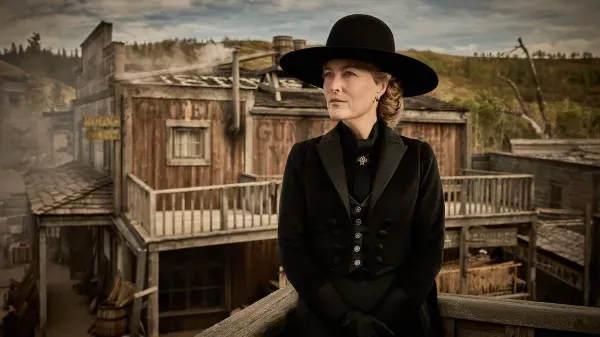
Unveiling Magic Behind 'Magic Farm', A Satire Laced with Cumbia
- Feb 12, 2025
'Magic Farm' is Argentine-born Spanish filmmaker Amalia Ulman's latest work. The film satirizes the exploits of a group of privileged Americans belonging to a Vice-lookalike media company. This ensemble, seeking sensational content from far-flung corners of the world, zeros in on Super Carlitos, a whimsical bunny-eared singer from the Argentine town of San Cristobal.
Ulman plays the role of Elena, the team's cameraperson and interpreter. Other members of the eccentric group include Edna, the disgruntled host, played by Chloë Sevigny, Justin, a gay sound guy who is smitten with an inn receptionist, portrayed by Joe Apollonio and Guillermo Jacubowicz, respectively. Completing the team is Dave, Edna's partner and a senior production official.
Following a wrong turn to the incorrect San Cristobal, the team, led by the clueless producer Jeff, turns to crafting a fictitious religious cult-themed story. In this venture, they get assistance from local residents Popa and her daughter Manchi, leading to hilariously droll interactions.
The 'Magic Farm' veers from the conventional with a distinct visual feel, thanks to cinematographer Carlos Rigo Bellver. The film uses unique camera placements and eye-catching transitions, interspersing shots from a 360-degree camera, giving it a mind-warping, disorienting effect.

The overall spirit of 'Magic Farm' is reminiscent of Chilean filmmaker Sebastian Silva's satirical cross-cultural pieces. As Ulman involves renowned actors out of their comfortable setting, the film echoes a captivating dissonance with scenes like Sevigny walking down rustic roads with electronic cumbia playing.
Ulman's character, Elena, stands out given her familiarity with the Argentine setting and its cultural nuances. Her intricate use of music and detailed visual cues reflect her background. Through clever scripting, Ulman unearths pervasive ignorance and recklessness among some US citizens interacting with Latin American countries. The Americans, preoccupied with their own affairs, overlook local issues like the health risk of toxic pesticides in San Cristobal, which Ulman skillfully enlightens the viewer about.
Interspersed throughout are moments of cultural clashes and demonstrations of the locals' resourcefulness overcoming American ineptitude born from complacency and entitlement. Elena's own character remains a puzzle, caught between her Argentine roots and her New York-based coworkers. Rather than clarifying her stand, Ulman leaves Elena mainly as a complicit observer, subtly hinting at the filmmaker's perspective through the narrative.







